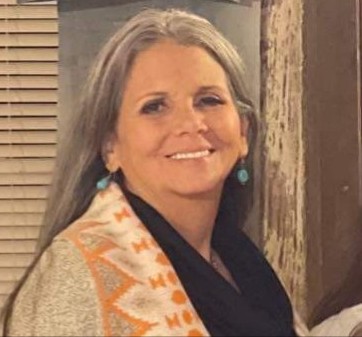I want to share my eye surgery story because it should never have happened. It was preventable, and I now live with the consequences of eye surgery by the hands of an optometrist.
Why should residents of New Hampshire care about my story? The legislature is now considering Senate Bill 440, a bill that’s eerily like one that was passed in my home state of Oklahoma years ago, allowing optometrists to perform eye surgery in and around the eye.
My name is Vicki Rutledge. I’m from Hugo, Okla., a small rural town about a three-hour drive from Oklahoma City. I’m also a member of the Choctaw Nation, the third-largest Indian Nation in the United States, with nearly 212,000 tribal members and more than 12,000 employees.
I was under the care of a private ophthalmologist and had cataract surgery successfully performed on my right eye in 2016. Two years later, I developed a cataract in my left eye as well as some mild posterior capsular opacification, a cloudy film behind the lens implant in my right eye. Because of the cost of surgery, I went to the Indian Health Service in Durant, Okla., in 2018.
A common treatment for my condition is laser eye surgery called YAG capsulotomy, where the cloudy film is removed. Unlike ophthalmologists, optometrists are not medical doctors or trained surgeons and are prohibited from performing this surgery in the vast majority of states—including all of new England—but not in Oklahoma. It’s one of the surgeries among many others that New Hampshire optometrists would be authorized to perform if SB 440 is enacted.
At my evaluation, my right eye had 20/20 vision as noted by the optometrist who performed a YAG capsulotomy on that eye the same day. During the surgery, I sensed things weren’t going well based on the optometrist’s body language and reactions, but did not say anything because my optometrist was a “doctor” with nearly 25 years of experience. I trusted her to perform the surgery, which was explained as being a quick, in-office procedure.
I went home with a patch on my eye, which is not typical, and the next day, when I removed the patch as instructed, I saw a large black area in the center of my vision. I went back to the same optometrist and was told that I had to see a retina specialist, who diagnosed damage to the macula, the center of my retina. I was told that my condition was untreatable and permanent.
My vision was now 20/500 in the right eye that had been 20/20 days before, and my central vision from that eye is permanently gone.
Subsequently, I had cataract surgery on my left eye and things went well for four months until I unfortunately suffered a retinal detachment in my left eye to go along with the permanently poor vision in my right eye. I underwent surgery to repair the retinal detachment, but unfortunately, I now have 20/400 vision in my left eye, leaving me legally blind in both eyes.
I understand and consider the loss of vision in my left eye was an unpreventable complication and I accepted it. However, the permanent damage to my right should have never happened.
I traveled from Oklahoma and testified against Senate Bill 440 because I thought it was important to share my story with the House Executive Departments and Administration Committee, which is currently reviewing the bill. I want to thank committee members for taking the time to listen to my story, and I hope it helped highlight the seriousness of permitting optometrists to perform eye surgery. The optometrist told me the laser surgery would be simple, quick, and painless. Instead, my life has forever been changed.
I just hope my story can raise awareness and be a real-life example of eye surgery by an optometrist that went horribly wrong, and that only ophthalmologists should perform surgery on the eyes. I would like to think something can come out my unfortunate story—that New Hampshire’s legislature doesn’t make the mistake that was made in Oklahoma, but instead chooses to protect New Hampshire patients while they still can and vote “no” on SB 440.




